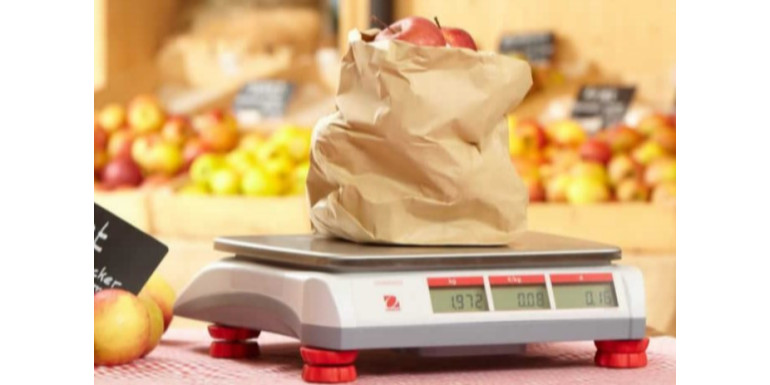
You’ll see the words “trade approved” on weighing scales and balances (also called legal for trade or approved scales), particularly if you’re looking for a retail scale.
What exactly does ‘trade approved’ mean? Is it really mandatory? Which industries require it? What do all these acronyms mean?
We’ll explore the world of trade approved scales, whether or not you need one, and which acronyms you should look for.
What is a Trade Approved Scale?
Broadly speaking, it means that the weighing scale was tested and proved that it meets the standards outlined by the organisation that oversees said requirements in your location or industry (NMI, EU, NRCS, OIML, NTEP, Trade Stamped, Verified, Class II or Class III, EC Stamped, M Class Approved and Trading Standards Approved are some of the most common organisations you’ll see online).
This is designed to ensure that customers get exactly what they pay for.
Which sort of products require trade approval?
You will require approved scales for most commercial buying or selling by weight, including the following products:
- Food
- Alcohol
- Produce
- Livestock feed
- Firewood or logs
- Liquid fuel
- Landscaping materials
- Precious metals and stones (including gold)
- Mechanical and construction parts
- Prepacked products that specify weight
It can also apply to the medical and pharmaceutical sectors (to ensure medication and chemical compounds are sold in the right quantity, for example).
Is it mandatory?
If you work in an industry where weight affects the price of what you’re selling, yes, it is likely required by law.
For example, grocery stores need trade approved scales to ensure produce is sold according to the correct weight. Sweet shops or ice cream stores also sell their goods by weight.
The law and regulations vary slightly depending on the country or state you live in, but usually, any weighing instrument that is used to sell by weight or calculate using the weight as a factor is required to be trade approved.
What do the Acronyms mean?
Usually, the acronyms are the name of the governing bodies who set the standards for weighing instruments.
The most common:
- CE: European Conformity
- M Class Approved: The Green M shows that the scale or balance meets criteria required for approval.
- Class II or III: The number refers to the accuracy and division of the scale or balance to determine its usage dependent on scale type or application.
Others:
- OIML: The Organisation International de Métrologie Légale (International Organization of Legal Metrology) is an intergovernmental treaty organization based in France.
- NMI: National Measurement Institute, Australia, the measurement standards body of the Australian government.
- NTEP: National Type Evaluation Program evaluates and certifies equipment before it is sold in the United States for trade use.
- NRCS: National Regulator for Compulsory Specifications, an agency of the South African Government Department of Trade and Industry.
| Class of Scale | Scale Resolution/ Readability | Application |
| II | 1mg to 50mg | Laboratory weighing of products including precious gems, metals and grains |
| II | 100mg or more | |
| III | 0.1g to 2g | Commercial weighing of products including food stuffs, animals, laundry, precious metal and semi-precious gem stones |
| III | 5g or more |
Click here for our trade approved scales!
Source: Adam Equipment
